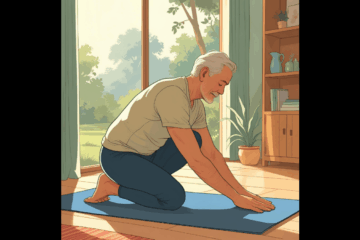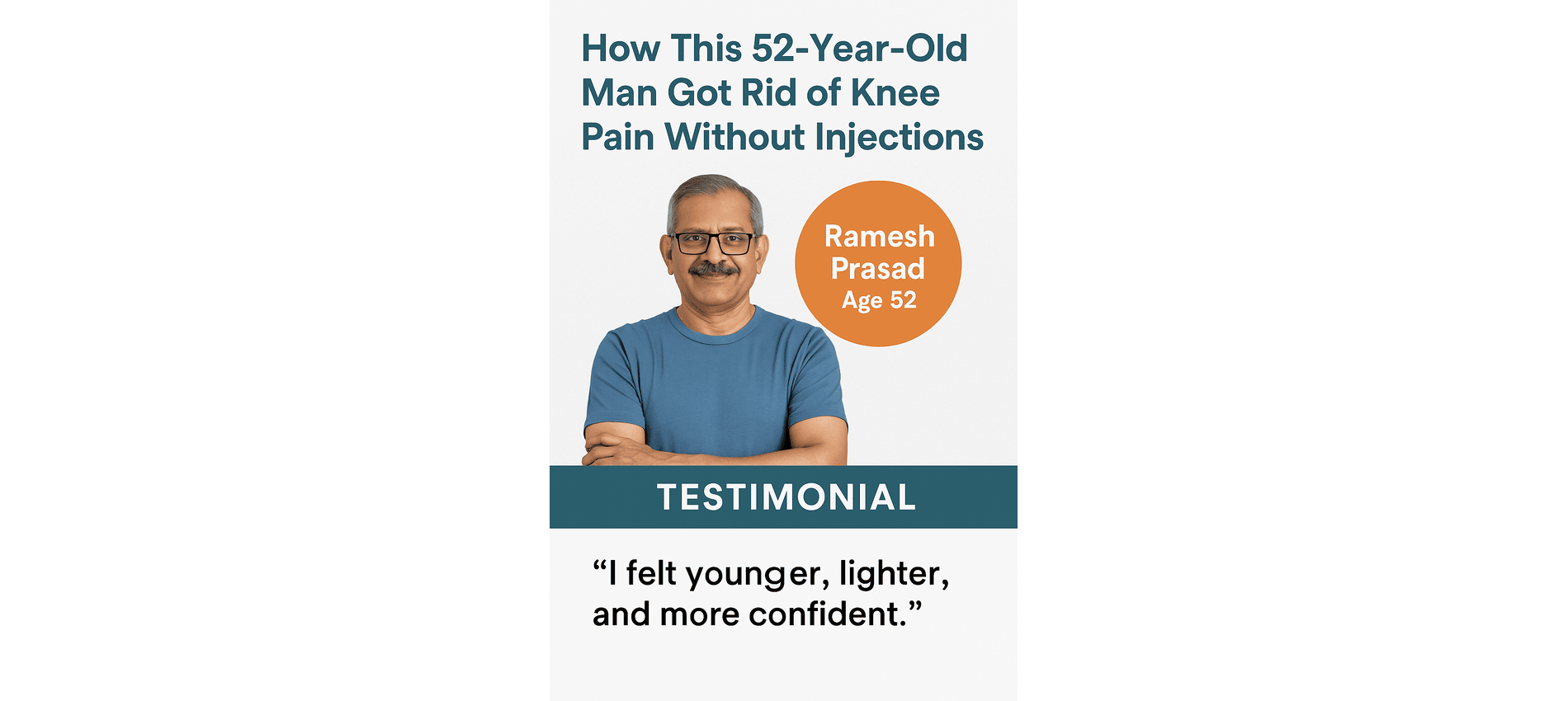Introduction
Knee pain is one of the most common musculoskeletal problems people face today — and it doesn’t just affect the elderly. Surprisingly, your body weight is a major factor that determines the health and longevity of your knees. Every step you take puts pressure on your knees, and when you’re carrying extra weight, that pressure multiplies. Understanding the relationship between weight and knee pain is critical to preventing long-term damage and staying mobile as you age.
How Excess Weight Damages Your Knees
1. Multiplied Force on the Knees
Many people don’t realize just how much extra weight affects their knees. For every 1 kilogram of body weight, the knees experience approximately 4 kilograms of force while walking. That means gaining just 5 kg adds 20 kg of extra pressure on your knees with each step. When you walk, climb stairs, or even stand for long periods, this added force can cause pain, wear, and long-term joint damage.
📌 Example: A person who is 10 kg overweight adds 40 kg of extra pressure on their knees every time they walk.
2. Accelerated Cartilage Breakdown
Your knee joints are cushioned by cartilage — a smooth tissue that helps bones move effortlessly. Excessive pressure from extra weight causes the cartilage to wear down faster than usual. This can lead to osteoarthritis, a condition where the cartilage wears away completely, causing bone-on-bone friction. This is extremely painful and often results in stiffness, swelling, and decreased range of motion.
3. Inflammation from Fat Tissue
Fat isn’t just passive storage — it actively produces substances called cytokines that promote inflammation. These inflammatory markers travel through your bloodstream and can inflame the linings of your joints (synovium), leading to chronic joint inflammation, even if you’re not putting pressure on your knees.
4. Muscle Imbalance and Poor Posture
Excess weight often leads to reduced physical activity, which in turn causes muscle weakening — especially in the thighs, glutes, and calves. Weak muscles can’t support the knee properly, and this imbalance can change your posture and the way you walk. Over time, this unnatural movement pattern stresses the knees and leads to joint degeneration.
5. Increased Risk of Injury
Heavier individuals often experience reduced coordination and balance, increasing the risk of twisting injuries, falls, and sprains — all of which can damage the knees further. Recovery is slower in overweight individuals, and repetitive strain worsens over time.
How to Lose Weight and Protect Your Knees
The good news? Even small weight loss can make a big difference in knee health. Studies show that losing just 5–10% of your body weight can significantly reduce joint pain and improve function.
1. Follow an Anti-Inflammatory Diet
Eat more:
- Leafy greens (spinach, kale)
- Berries (blueberries, strawberries)
- Fatty fish (salmon, mackerel)
- Nuts, seeds, and olive oil
Avoid:
- Refined sugar
- Fried and processed foods
- Trans fats and sugary beverages
This helps not just with weight loss, but also reduces inflammation in the joints.
2. Do Low-Impact Exercises
Low-impact workouts improve joint flexibility and muscle strength without stressing the knees. Recommended options include:
- Swimming
- Cycling
- Walking on grass or treadmill
- Chair yoga or Pilates
Aim for 30 minutes daily to see gradual improvement.
3. Monitor Your Weight & BMI
Use a digital scale to track weight weekly. Use a BMI calculator to stay within the healthy range (18.5 – 24.9). Also, monitor waist circumference, which directly correlates with knee stress.
4. Get Professional Help
Consult a physiotherapist or nutritionist for a personalized plan. They can recommend custom exercises and diet strategies tailored to your condition.
Conclusion
Your knees are delicate structures that serve you every day — whether you walk, run, climb stairs, or sit. Carrying too much weight places a tremendous burden on these joints, making them prone to injury, pain, and arthritis. The good news? You can reverse or slow this damage through simple lifestyle changes. Start small — eat better, move more, and stay consistent. Your knees will thank you for years to come.




